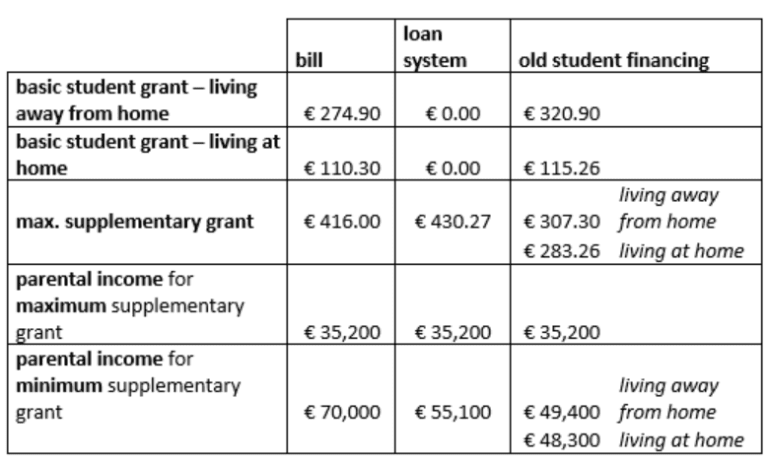Students will indeed pay interest on their student debt, but Education Minister Robbert Dijkgraaf sees a ray of hope.
(Photo: Ibrahim Boran via Unsplash)
Inflation is higher than interest rates, so student debt will be reduced “in real terms”, according to Minister Dijkgraaf.
This view is expressed by Dijkgraaf in the context of the bill for a new basic student grant, which he sent this week to the House of Representatives. He wants to introduce the new grant with effect from September 2023.
The bill also covers the interest on student debt and the repayment period. “Changes in interest rates are unpredictable”, the Minister argues. So over a period of 35 years the interest rate can be higher or lower than expected.
“On the other hand, in the course of 35 years a debt becomes smaller in real terms if inflation is higher than the interest rate on student debt”, he explains. “That was certainly the case in recent decades.”
In broad terms
In fact, this is the only new information contained in the documents he has sent to the House of Representatives. The bill itself was already known in broad terms, although a few small changes have been made.
Students living at home are to get 110.30 euros per month. Students living away from home will receive 274.90 euros. The supplementary grant will be a maximum of 416 euros and is subject in part to the parental income.

(Source: Hoger Onderwijs Persbureau)
For the 2023-2024 academic year, there will be an additional 164.30 euros per month for students living away from home. With this, the government wants to compensate students partially for the rapidly rising rate of inflation.
The amounts differ somewhat from previous summaries, but the differences are slight. Only the maximum supplementary grant is particularly striking: the increase is 15 euros per month, in other words 180 euros per year.
It should be noted these amounts are not necessarily a gift. Students get the basic student grant and supplementary grant as a loan, in the same way as the students’ public transport card. They have to graduate within ten years, otherwise they have to pay everything back.
The bill also legislates for an allowance for students and former students under the student loan system. One billion euros has been set aside for them. They will get 359 euros for each year that they missed out on a basic student grant. Additionally, the first four cohorts of students under the loan system (also known as ‘unlucky students’) will get 1,836 euros instead of the ‘voucher’ for extra teaching that was originally promised.
Substantiation
The original bill was criticised by the Council of State, which did not feel that it was adequately substantiated. The system is going to be changed after a relatively short time. The advisors wanted to know whether it will now be stable.
The government has now made the considerations clearer, but still talks of a “volatile history of student financing, in which a variety of values are weighed up against each other differently in the course of time”. In other words, things can always change.
The bill was also uploaded online so that people could add comments. The vast majority of respondents considered the amounts too low, Minister Dijkgraaf mentions in his explanatory notes. Respondents refer to inflation and the high housing costs.
But the Minister sees no reason for objection. The basic student grant will “never cover a student’s total costs during the study period”, Dijkgraaf writes. Students, parents and the government always share the costs of education, and the balance is now shifting a little more back towards the government. So students will benefit.
Criticism
In their criticism of the new basic student grant, the student organisations are all somewhat conflicted: on the one hand, it is good that students benefit, but on the other hand they feel the amounts are too low.
For example, the Dutch National Students’ Association (ISO) criticises the 164 euros per month that students living away from home will get for one year to compensate for inflation. Many senior students will not get the money because they are not entitled to the basic student grant or because they are living with their parents, chair Terri van der Velden suggests.
HOP, Bas Belleman
Do you have a question or comment about this article?
redactie@hogeronderwijspersbureau.nl


Comments are closed.